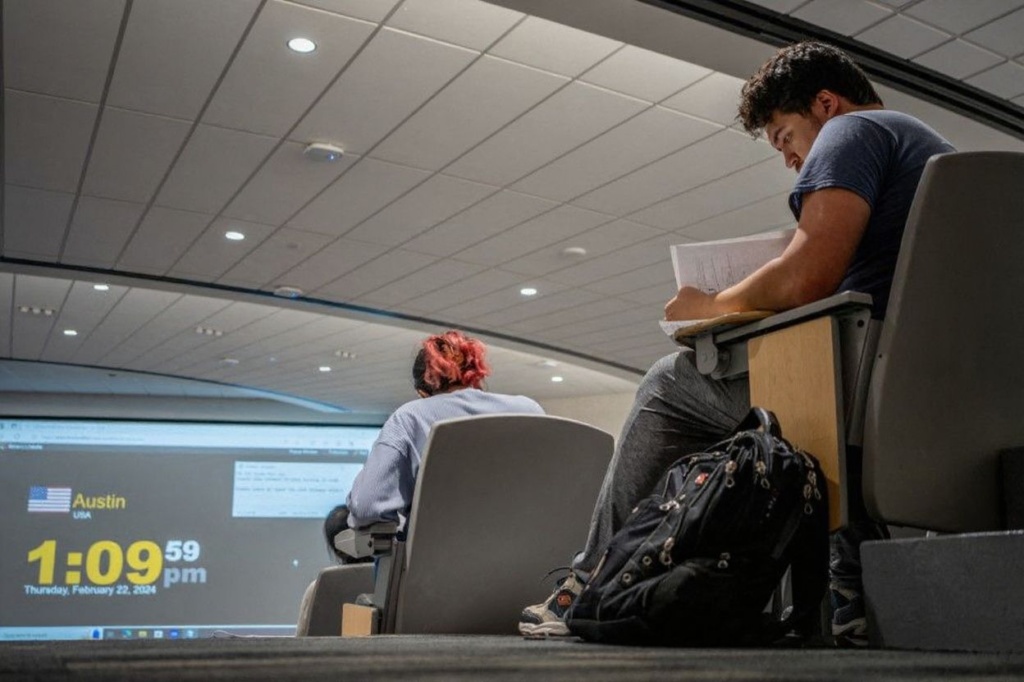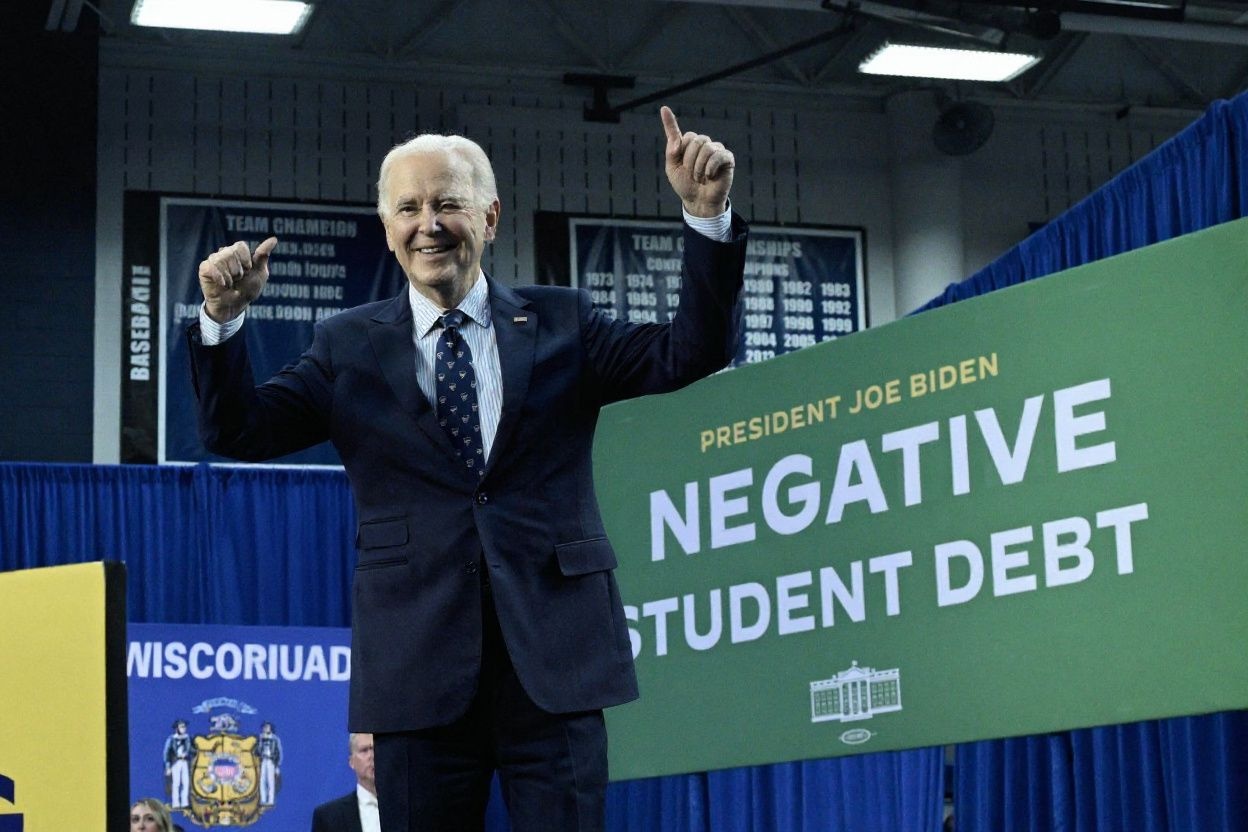
There’s no time like the present to start looking for the best UK universities for US students.
In February 2025, an unnamed American student wrote an opinion piece on the Imperial College of London’s student newspaper, Felix, titled “Why I left America to study in London – and might not go back.”
There, they wrote that they had only planned to stay in London to earn their undergraduate degree and return home to the US after, but have been reconsidering that decision as of late.
They describe the news as their latest “Internet addiction,” where headlines like “The Pharmaceutical Industry Heads Into Musk’s Wood Chipper” and “Trump’s Cuts Target Next Generation of Scientists and Public Health Leaders” gives him pause.
“The news worries me — firing and replacing of federal personnel, rollbacks on DEI initiatives, sweeping changes to the education system, cuts to foreign aid, I could go on,” they wrote.
“But more than anything, I used to feel proud of where I came from. I’m not sure I can say the same now.”
In the same month, a survey of 2,000 Americans showed that almost seven in 10 respondents worried about the direction the US is heading, while 65% described American society as having become “toxic.
“Many professionals, especially younger generations, are questioning whether the traditional ‘American Dream’ is still attainable,” said Max Shak, founder and chief executive officer of Zapiy, in the survey.
Clint Kreider, a licensed marriage and family therapist at Still Water Wellness Group, echoes Shak’s sentiments: “Younger generations, in particular, are driving this trend. Raised in the shadow of the 2008 recession and pandemic-era instability, they’ve inherited scepticism toward traditional pathways to stability. Social media amplifies this by showcasing alternatives — countries with robust safety nets, affordable education or mandated vacation time.”
But for all the ways that the US is deteriorating, how does the UK measure up (or down)?
Are there UK universities for US students seeking the learning and living experience that Americans used to be proud of?
Everything you need to know about UK universities for US students
 Lecture halls don’t look all that different no matter where you are.
Lecture halls don’t look all that different no matter where you are.
The similarities between UK and US universities
There’s no denying that the universities in the UK and the US match each other rank for rank, prestige for prestige.
In the QS World University Rankings 2025, four institutions from each country are featured in the top 10 – Imperial, Oxford, Cambridge, and UCL for the UK, and MIT, Harvard, Stanford, and Caltech for the US.
And no matter what university you attend in either country, simply saying that you’ve earned your degree there is enough to impress employers.
Given their prestige, most unis in the UK and US have sizable international student population, allowing you to experience the world in one campus.
With that comes plenty of student support services too, something that any student should always take advantage of.
 The biggest difference about UK universities for US students to note is how you’re going to be assessed.
The biggest difference about UK universities for US students to note is how you’re going to be assessed.
The differences between UK and US universities
One of the biggest differences you’ll notice in UK universities for US students is how you’re taught and tested.
Unlike the US, where teaching is very hands-on with plenty of hours with your peers and lecturers, the higher education system in the UK emphasises independent study.
Don’t be fooled by the abundant time on your hands, though.
You’ll be expected to have the discipline to keep up with your programme. Self-direction is required, not procrastination.
In terms of exams, your grades in US universities are spread out through various assignments, such as homework, quizzes, midterm and final exams, class participation, and group projects.
This differs greatly in the UK, where assessments come from a few key pieces of coursework, such as essays, presentations, or lab reports, and a term-end or year-end examination, which usually carries significant weight in determining your final grade.
The cost of attending UK universities for US students
 Prepare to fork out some money.
Prepare to fork out some money.
Application and other fees
One of the first costs you’ll have to bear is the university’s application fee. In the US, depending on the institution and programme, these non-refundable application fees can cost anywhere between US$40 and US$275.
(There are, however, universities and ways you don’t have to pay the fee – we’ve covered that here.)
That is perhaps most of the application-related costs that you’ll have to deal with, which is a major benefit of applying for schools within the US.
Things get a little more complicated for US students when trying to study in the UK.
First, the application fee remains, though at a much lower and one-off cost. Like how you’d use the Common App in the US, UK universities use UCAS for their student application needs. This means you’ll need to create an account and pay a flat rate of 28.50 pounds (US$38) for up to five choices for 2025 entry.
Once you’ve secured a spot in the university of your choosing, you’ll need to apply for a UK Student visa, which costs 524 pounds (US$709), and pay for the compulsory immigration health surcharge, which is 776 pounds (US$1,051) per year.
So, if you’re applying for a three-year programme, that’s 2,328 pounds (US$3,153) total.
 There’s a chance you could avoid student debt if you go to specific UK universities for US students.
There’s a chance you could avoid student debt if you go to specific UK universities for US students.
Tuition fees
In the UK, international students pay up to 38,000 pounds (US$51,467) on average per year for undergraduate programmes.
To date, the most expensive programme is Medical and Veterinary Science (including for this purpose the Second M.B. and Second Vet.M.B. Examinationss, which cost 70,554 pounds (US$95,558) per year.
Meanwhile, the most affordable programme at a UK university can be found at Queen Margaret University. Annual tuition fees for the 2026-2027 undergraduate programmes start at 9,725 pounds (US$13,171) and go up to 17,325 pounds (US$23,464).
Of course, tuition fees vary according to the university and programme. For example, a BSc Economics from the University of Manchester costs 31,500 pounds (US$42,663) per year for international students, but costs only 17,600 pounds (US$23,837) annually at the University of Westminster.
In the US, the average budgets for full-time undergraduate students range from US$20,570 (15,187 pounds) for public two-year in-district students to US$62,990 (46,507 pounds) for private nonprofit four-year students. At public four-year institutions, average budgets are US$29,910 (22,083 pounds) for in-state students and US$49,080 (36,237 pounds) for out-of-state students.
Advantages of attending UK universities for US students
 A boat punts past Wren Library at Trinity College, part of the University of Cambridge. You could be on it, admiring the view too. There’s no denying the benefit of an overseas education, especially a university degree earned from the UK.
A boat punts past Wren Library at Trinity College, part of the University of Cambridge. You could be on it, admiring the view too. There’s no denying the benefit of an overseas education, especially a university degree earned from the UK.
Shorter degrees with a more focused curriculum
A bachelor’s degree in the US takes four years to complete, whereas the same degree in the UK only takes three. Master’s degrees are the same – it takes two years to complete in the US, but only takes one in the UK.
A big reason for this is that the US higher education system offers a more flexible curriculum. This is a benefit for those who are still uncertain about their degrees and want to take the opportunity to explore other subject electives.
For example, every student at Drexel University must take a wide variety of elective classes across various disciplines. This includes the first-year English sequence and Intro to Civic Engagement, along with other requirements that vary by major.
“For most students, these electives are considered a total pain – a series of speed bumps that must be conquered with minimal effort,” writes Sarah Fiedorek in an opinion piece for The Triangle.
Fiedorek, however, goes on to support these electives, writing in the article that “while yes, it is my major classes that will (hopefully) land me a job someday, when I reflect on the classes that have truly shaped me, a lot of them are electives.”
In the UK, learning is more specialised. This means that if you’re enrolled in a dentistry programme, don’t expect to be able to take up electives like Modern History or UI/UX design.
So if you’re already certain of what you want to pursue, a UK undergraduate degree could get you career-ready in three years instead of four.
“At [the University of Edinburgh,] I could study what I wanted — History — and didn’t have to fiddle with other subjects, which would have been required at most liberal arts programmes in the US,” says Scarlett Kiaras-Attari, who was raised in Louisville, Kentucky, in an interview with Business Insider.
 One of the best UK universities for US students might be Imperial College London, where you might even get the chance to meet the King.
One of the best UK universities for US students might be Imperial College London, where you might even get the chance to meet the King.
Not just any degree abroad, but one from the UK
While there is a growing consensus that degrees are no longer the base requirement to secure a job – 52% of US job postings on Indeed did not mention any formal education requirement as of January 2024 – there is still no denying the benefit of earning one.
Take Raquel Villanueva’s career, for example.
Villanueva chose to study in the UK because of its immersive, hands-on approach to journalism, which shaped her ability to craft compelling stories and think on her feet. Post-master’s degree, she’s worked with Comedy Central and the BBC, among other networks, and is now working at NASA’s Jet Propulsion Laboratory in Los Angeles.
“It was more than just an academic experience — it became a defining moment in my personal and professional journey,” says Villanueva.
“A decade later, I can still trace many of my choices back to those early experiences abroad. From studying journalism to working in TV and now producing video content at NASA’s Jet Propulsion Laboratory, the skills I developed in the UK shaped my approach to storytelling in journalism, and over time, that foundation helped me transition into science communication.”
 Make sure you do your research about UK universities for US students and weigh the pros and cons right.
Make sure you do your research about UK universities for US students and weigh the pros and cons right.
What Americans must know before joining UK universities
We’ve covered the extra effort and cost you’ll need as a US student going to the UK for your studies, but the gist is that you’ll have to prepare for additional application fees, which total at least 2,880.50 pounds (US$3,901), and brace yourself for less programme flexibility.
Beyond that, there are three more things to take heed of:
Extra living and miscellaneous expenses
Education-related costs aside, studying abroad also means you’ll have to deal with another financial heavy-hitter – your cost of living.
International students in the UK can expect to pay around 1,300 to 1,400 pounds (US$1,760 to US$1,896) per month in London or 900 to 1,300 pounds (US$1,218 to US$1,760) in the rest of the UK to cover accommodation, bills, groceries, and a range of other living expenses.
This could be otherwise avoided or reduced if you were only pursuing your degree locally in the US and staying somewhere that didn’t require you to fork out this amount, such as living with your parents or a guardian.
 The good news is that the American dollar still beats the British pound.
The good news is that the American dollar still beats the British pound.
Less financial aid available as an international student
While many UK universities offer a range of scholarships and financial aid for their international students, you might find that you have fewer options than if you chose to study in the US.
For example, many US universities offer full-ride scholarships, especially to local students, and that’s a benefit you’ll find greatly reduced as an international student in the UK. Instead, UK universities are more selective in their financial aid offerings.
In the US, aside from good academic performance and showcasing exceptional talent, scholarships can be offered based on service or leadership too. Take, for example, Ball State University’s Emens Leadership Scholarship, which welcomes high school seniors who have applied and been admitted to the university, and who have actively participated in academic and extracurricular activities and have been a leader in their high school and local community, to apply for this award.
Meanwhile, the scholarships offered by UK universities generally focus more on your academic performance, like the University of Kent’s international scholarships for undergraduate students, which are only awarded to students with at least AAA at A level or equivalent overseas qualification.
 Anti-Brexit demonstrator Steve Bray and fellow pro-EU activists wave flags as they protest near Lancaster House, the venue of the UK-EU Summit, in London on May 19, 2025.
Anti-Brexit demonstrator Steve Bray and fellow pro-EU activists wave flags as they protest near Lancaster House, the venue of the UK-EU Summit, in London on May 19, 2025.
Potential policy changes in the future
Just like how turbulent things are in the US, studying abroad doesn’t necessarily mean you’re spared from the ongoings within the country too.
For example, pressured to control net migration, the British government announced that they were banning international students from bringing their family members in March 2023. Only family members of international students who fulfil a set of requirements were granted a dependant visa.
While that was one method of curbing net migration, the UK could look to policies like reducing the number of approved international student visa applications, much like what was done with Australia.










